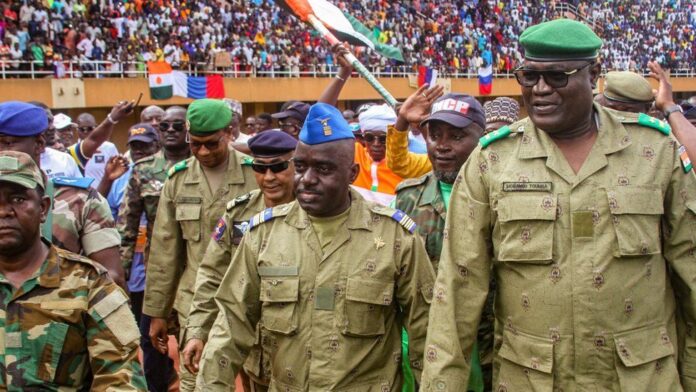In a tense standoff, Niger’s skies remain eerily quiet as the country’s airspace remains closed indefinitely. The coup leaders, who took control after detaining President Mohamed Bazoum on July 26th, have cited the threat of military intervention from neighboring countries as their rationale for this drastic measure. As tensions escalate, the West African group of countries, known as Ecowas, has issued a stern warning that it could resort to the use of force if Bazoum is not reinstated by the stipulated deadline.
The situation has garnered global attention and condemnation. Nations across the world, including former colonial power France, the European Union, the United Nations, and the United States, have expressed their disapproval of the military takeover. The international community remains unified in its call for a return to democratic governance in Niger.
Adding a layer of complexity to the crisis, a spokesperson for the junta revealed that they had credible information about a foreign power’s plans to attack Niger. This claim has only heightened concerns about the potential for further conflict and instability in the region.
The Ecowas military chiefs convened a crisis meeting in Nigeria, where they outlined a detailed plan for the potential use of force. While the regional body desires a diplomatic resolution, it has made it clear that the coup leaders have limited time to relinquish power before the use of force becomes a real possibility.

Niger, a significant producer of uranium—a crucial resource for nuclear power—played a pivotal role under President Bazoum in the fight against Islamist militants in the Sahel region of West Africa. This strategic partnership had solidified Niger’s position as a key Western ally.
As the crisis deepens, two of Niger’s neighboring countries, Burkina Faso and Mali, have warned that any external military intervention in Niger would be seen as a declaration of war against them. Both Burkina Faso and Mali, members of Ecowas, have faced periods of military rule and have since been suspended from the bloc.
While the coup leaders remain steadfast in their defiance, thousands of their supporters gathered defiantly at a stadium in the capital city, Niamey, to demonstrate their allegiance. The situation is far from resolved, and the implications of the coup extend beyond Niger’s borders. The international community watches anxiously, hoping for a peaceful resolution to a crisis that could have far-reaching consequences in a region already grappling with political instability and security challenges.


